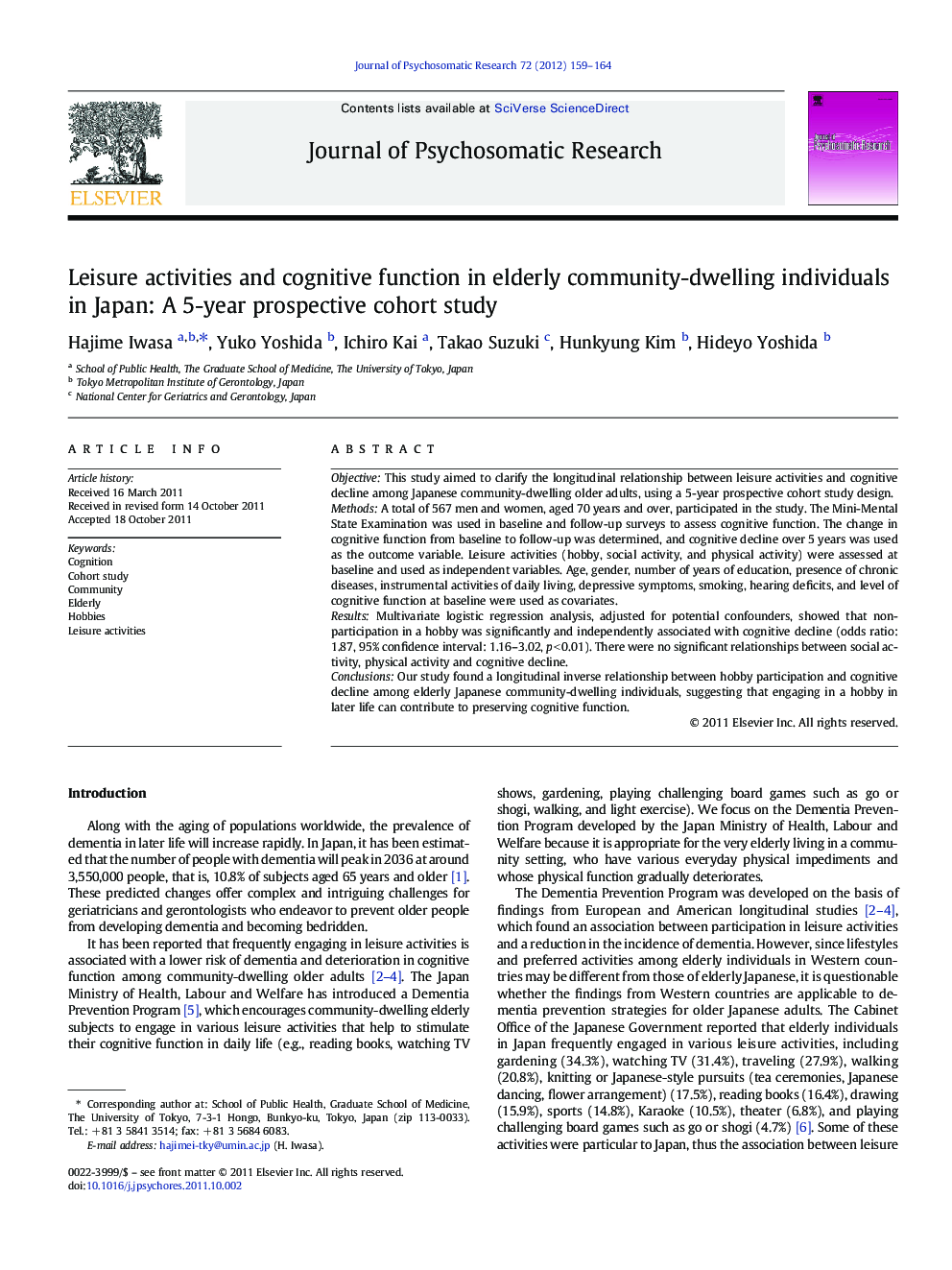| Article ID | Journal | Published Year | Pages | File Type |
|---|---|---|---|---|
| 949742 | Journal of Psychosomatic Research | 2012 | 6 Pages |
ObjectiveThis study aimed to clarify the longitudinal relationship between leisure activities and cognitive decline among Japanese community-dwelling older adults, using a 5-year prospective cohort study design.MethodsA total of 567 men and women, aged 70 years and over, participated in the study. The Mini-Mental State Examination was used in baseline and follow-up surveys to assess cognitive function. The change in cognitive function from baseline to follow-up was determined, and cognitive decline over 5 years was used as the outcome variable. Leisure activities (hobby, social activity, and physical activity) were assessed at baseline and used as independent variables. Age, gender, number of years of education, presence of chronic diseases, instrumental activities of daily living, depressive symptoms, smoking, hearing deficits, and level of cognitive function at baseline were used as covariates.ResultsMultivariate logistic regression analysis, adjusted for potential confounders, showed that non-participation in a hobby was significantly and independently associated with cognitive decline (odds ratio: 1.87, 95% confidence interval: 1.16–3.02, p < 0.01). There were no significant relationships between social activity, physical activity and cognitive decline.ConclusionsOur study found a longitudinal inverse relationship between hobby participation and cognitive decline among elderly Japanese community-dwelling individuals, suggesting that engaging in a hobby in later life can contribute to preserving cognitive function.
